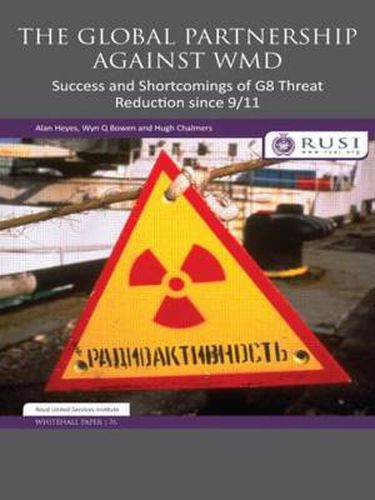Readings Newsletter
Become a Readings Member to make your shopping experience even easier.
Sign in or sign up for free!
You’re not far away from qualifying for FREE standard shipping within Australia
You’ve qualified for FREE standard shipping within Australia
The cart is loading…






The 9/11 terrorist attacks prompted a new urgency in efforts to deal with chemical, biological, radiological and nuclear proliferati on. The potential acquisition and use by terrorist groups of such weaponry was suddenly a much increased threat. The G8 Global Partnership against the Spread of Weapons and Materials of Mass Destruction subsequently encouraged some twenty-two countries and the European Union to pledge up to $20 billion to address this challenge. The creation of the Global Partnership was the first time so many countries agreed to collaborate on a range of non-proliferation, security and nuclear safety programmes, as well as commit such an amount of resources to them. Based on extensive primary research, this Whitehall Paper assesses the success and shortcomings to date of the Global Partnership, and suggests how the mechanism can be bolstered and taken forward.
$9.00 standard shipping within Australia
FREE standard shipping within Australia for orders over $100.00
Express & International shipping calculated at checkout
The 9/11 terrorist attacks prompted a new urgency in efforts to deal with chemical, biological, radiological and nuclear proliferati on. The potential acquisition and use by terrorist groups of such weaponry was suddenly a much increased threat. The G8 Global Partnership against the Spread of Weapons and Materials of Mass Destruction subsequently encouraged some twenty-two countries and the European Union to pledge up to $20 billion to address this challenge. The creation of the Global Partnership was the first time so many countries agreed to collaborate on a range of non-proliferation, security and nuclear safety programmes, as well as commit such an amount of resources to them. Based on extensive primary research, this Whitehall Paper assesses the success and shortcomings to date of the Global Partnership, and suggests how the mechanism can be bolstered and taken forward.